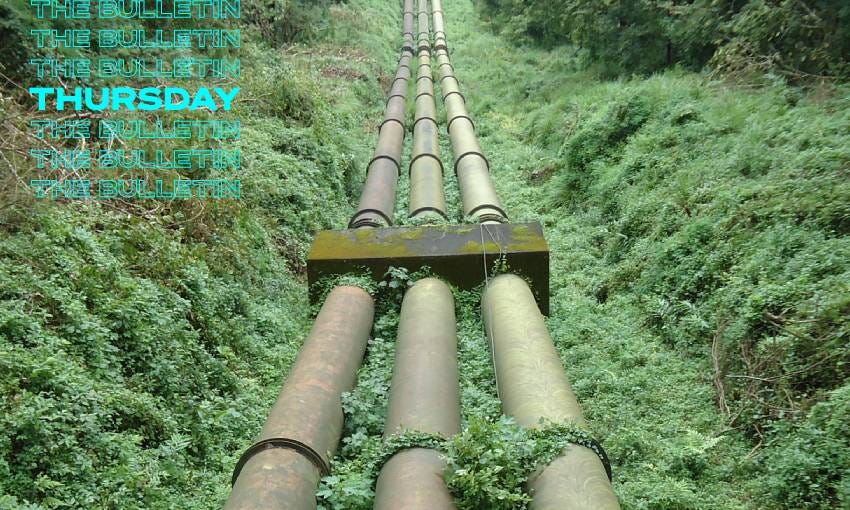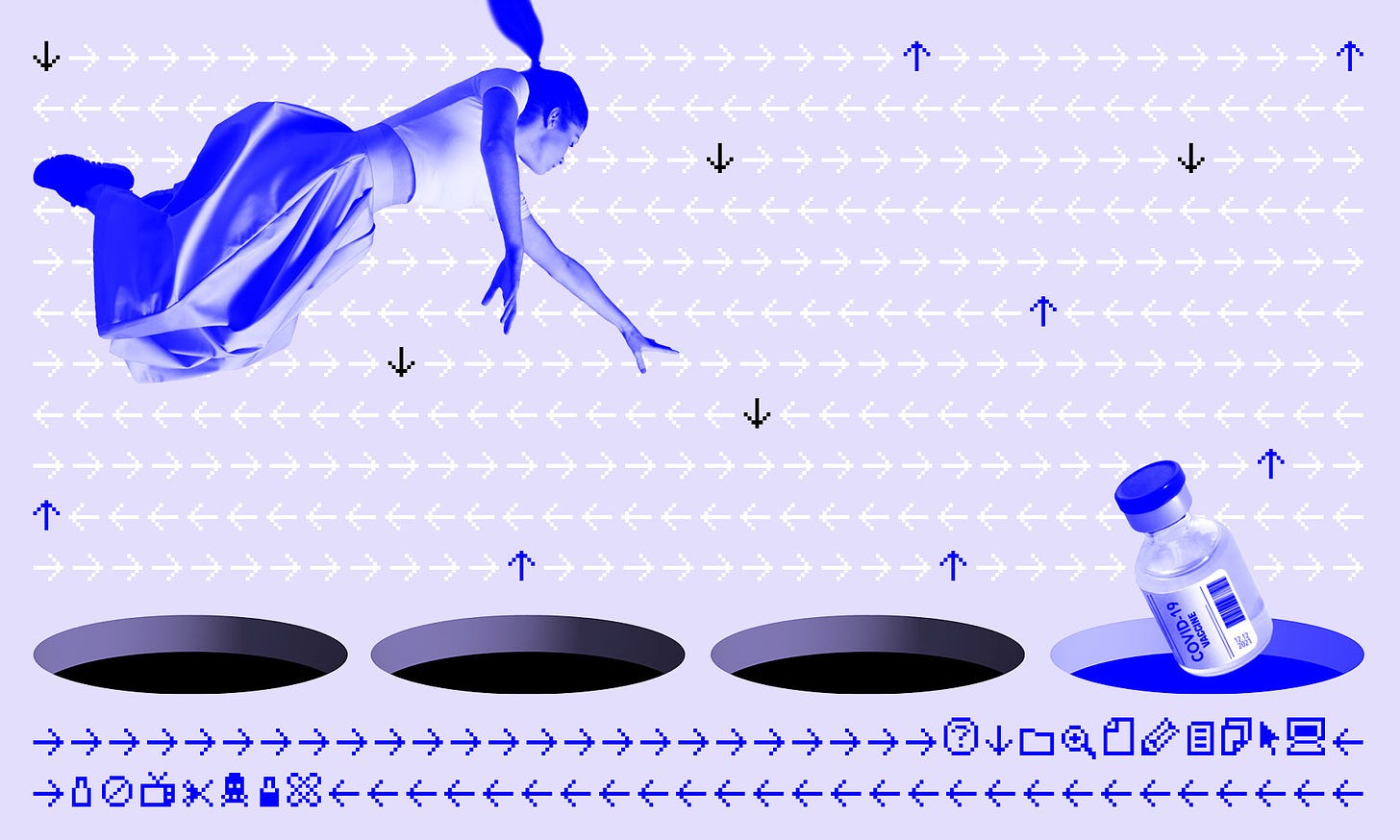Why everybody hates Three Waters
The government is moving forward with its programme to take over the country’s water assets amid howls of protest
Mōrena and welcome to The Bulletin for Thursday, October 28, by Justin Giovannetti. Presented in partnership with Z Energy.
In today’s edition: Auckland primary schools could reopen; supermarkets explain high food costs; Wellington’s bird count soars; but first, Three Waters goes forward.
Three Waters could be one of the Ardern government’s biggest acts. (Ranjith Siji/Flickr)
Three Waters, four entities and a political hornets’ nest. The government’s decision to push ahead with its Three Waters programme and take control of the country’s water assets despite widespread opposition has left councils fuming. Even in parliament, Labour now faces a wall of resistance to its proposal. The Green Party, which has told Labour to hit pause on its plans, has warned in the NZ Herald that the government could face a “reverse Goldilocks situation” where no one is satisfied. Nanaia Mahuta, the local government minister, said yesterday that she was left with no choice after councils underinvested in the country’s drinking, sewage and stormwater systems.
This could be one of the Ardern government’s most memorable efforts. Clean drinking water is at the core of what a government does. People expect to turn on a tap or flush a toilet and not have to think about it. The Beehive now plans to wrest day-to-day control of 67 council-owned water systems and turn them over to four new publicly-owned water entities by 2024. Mahuta said she expects the country’s water infrastructure will require $185 billion of upgrades over the next three decades. Her comments were featured in The Spinoff’s live updates yesterday and she spoke in stark terms, telling councils that they were sitting on “literally crumbling” systems that many of them can’t afford to repair.
Unhappy and feeling unheard, councils say the minister is wrong. In response to widespread anger, the government has set up a working group with local councils, rural and iwi representatives. It’ll have seven weeks to report back before the first bill is tabled. It’s not being seen as a concession. In the Nelson Mail, local councillors said the government’s decision is “unfathomable”, “undemocratic” and that locals have been “hoodwinked” by a consultation that was a “charade.” They also insist their assets are well-maintained and well-funded. In the Timaru Herald, three unhappy mayors said the government was “confiscating” one of their biggest assets despite clear opposition. In The Press, a Christchurch councillor called the government a “revolting pack of thieving liars”. The indiscreet language, from so many elected representatives across the country, is unusual.
First you ask nicely, and when that doesn’t work… Three Waters was supposed to be voluntary, but as detailed in previous editions of The Bulletin, the entire process started poorly, and through a mixture of real grievances and some misinformation, the tide quickly turned against it. Thomas Coughlan, in the NZ Herald (premium), unpacked some of the finer details about how the government will flip $35 billion worth of pipes and treatment facilities. It’s a complicated plan that involves giving councils shared ownership of the assets, without any control over them or how they are funded. An American credit rating agency was brought in to help with the design of the programme, which won’t lessen fears that the big new public entities could be privatised by a future government.
If you like what you’re reading, we need your support. The Spinoff is doing our utmost to keep you updated on Covid-19 related news. Every dollar our members contribute directly funds our editorial team and is devoted to ensuring we do more. Click here to learn how you can support the team today.
In Covid-19 news: Parts of Waikato under alert level three moved at midnight to step one of the bespoke system being used in Auckland that allows for outdoor picnics. Auckland’s primary schools could reopen in about two weeks, with the education minister indicating plans are underway for a resumption on November 15. Speaking with RNZ, Chris Hipkins said the date is only a guide and case numbers need to remain stable over the coming weeks for it to happen.
Yesterday’s announcement of an expected overhaul of managed-isolation was postponed to 1pm today. If you’re a New Zealander overseas, I’d love your reaction to the government’s plan.
The Covid numbers: There are 41 cases in hospital and 5 in ICU/HDU. There are now 1,282 active cases in New Zealand. 68 new community cases were reported in Auckland yesterday, 6 in Waikato. 42,136 people were vaccinated on Tuesday.
The Spinoff’s Covid data tracker has the latest figures.
What is the ‘Sovereign Hīkoi of Truth’? Dylan Reeve reports for IRL about the protest road trip that hit Auckland’s southern boundary and seems to be waiting in front of a police cordon. The movement doesn’t appear to have any single focus, but has claimed to oppose one world government, Covid-19 vaccines and Bill Gates amongst many others. The group is trying to get to Waitangi, but local leaders at the destination haven’t shown much enthusiasm for it.
Distance, not a lack of competition, is driving food prices: supermarkets. The Commerce Commission’s ongoing inquiry into the high cost of filling a New Zealand trolly has now turned to testimony from the country’s two big supermarket operators. According to Stuff, Foodstuffs and Woolworths both said that prices shouldn’t be compared to other countries at all—but if you have to, the country’s location in the world is the problem. They even brought in an economist who argued that if you compare other local costs to other countries, that would mean everything in New Zealand is expensive. Shock horror!
The Spinoff is hiring a Māori politics reporter and a Pacific communities editor.
The application period to apply for both jobs closes in early November. The two new editorial positions are made possible by NZ On Air’s Public Interest Journalism Fund.
The Australian government has funded a deal to buy the largest mobile operator in the south Pacific. The Samoa Observer reports on the purchase of Digicel’s Pacific arm by Telstra and finds that Australian taxpayers’ funded the takeover to prevent a Chinese company from buying it. The operator serves a number of Pacific islands. While the recently announced Aukus security pact and nuclear submarine plan grabs headlines, these commercial deals are a big part of the strategic chess match underway between China and the west.
Wellington’s native bird count is soaring. It’s been an incredible decade for native birds in the capital, with the average count for all species increasing by 50%, the NZ Herald reports. The population for the gregarious but endangered kākā is up 250%. Numbers for the thicc kererū are up nearly 190%, while your friendly neighbourhood tui has seen its flight mates jump by 121%. They’re all birds of the year in my book.
Got some feedback about The Bulletin, or anything in the news?
Get in touch with me at thebulletin@thespinoff.co.nz
Right now on The Spinoff: IRL reports on a first-person account of someone who went down the anti-vax rabbit hole and came back out again. Anna Rawhiti-Connell writes a letter of appreciation for Tāmaki Makaurau. Chris Schulz warns that if you want Christmas presents you need to get sorted right now. Really, right now. Duncan Greive & Jane Yee handle the Celebrity Treasure Island power rankings this week as the Awesome Foursome falls apart. Chris Schulz tries to understand how libraries can run out of e-books.
For a long read today, looking to the past for clues about our climate future. Marc Daalder writes for Newsroom about time machines left all over the world that help humanity understand what a warming climate looks like. While the time machines in this case are actually ice cores pulled from the depths of Antarctica or fossilised leaves in cliffs, there’s more information out there than you’d think. Here’s a sample:
Climate change deniers like to say the "climate is always changing", as if that is a reassuring thought. The truth is that the entirety of human civilisation has taken place in the blink of a geologic eye. In the length of that blink, the climate has been remarkably stable, rarely varying more than half a degree from the norm, but this is an outlier when the broader history of the planet is taken into view.
Now, in just a century, through what amounts to a planetary-level experiment in terraforming, we have thrust our civilisation into new and uncharted waters. At least, waters uncharted by humans.
Not giving up on keeping the America’s Cup in Auckland. One News reports that businessman Mark Dunphy is doubling his cash offer to keep the race local to $40 million. He and Team NZ had been going at it in the media, but the cup organisers have now gone largely quiet. They have indicated the cup defence is likely going overseas, while the American team has pulled out because of the lack of information on the next venue.
That's it for The Bulletin. If you want to support the work we do at The Spinoff, please check out our membership programme.







